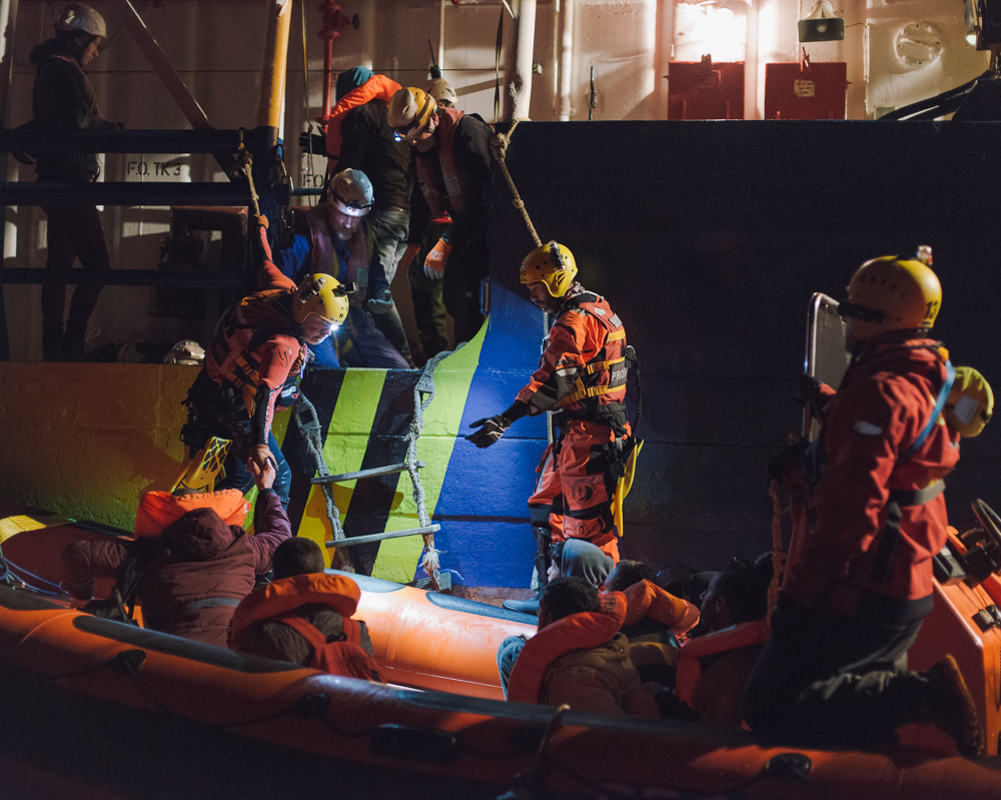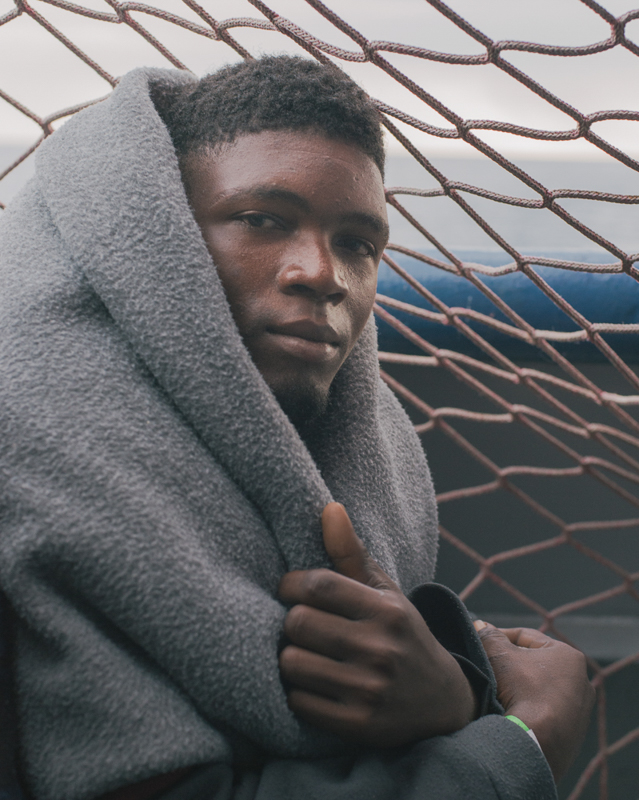This week on Photojournalism Now: Friday Round Up – Berlin-based photographer Roman Kutzowitz shares his photo essay on the continuing migration crisis in Europe. Also, the Australian Centre for Photography in Sydney hosts the International Women’s Day Panel In Your Dreams.
Feature story:
Roman Kutzowitz – A wet grave, a stepping stone

In this ongoing body of work Berlin-based documentary photographer Roman Kutzowitz draws focus on the political machinations that have turned the Mediterranean into what he calls “the world’s deadliest border”. This project furthers his work on what he says is the “systemic marginalization of groups, environmental injustice and creative resistance against mechanisms of oppression”.




This is an edited version of Kutzowitz written essay. You can read the full text here and see more images.
“Documents from the world’s deadliest border – photographs from Moria, Skala Sykamnia, the Aegean Sea, the Mediterranean Sea, Pozallo, Ragusa, Erbe Bianche.
As European political culture shifts to the right and increasingly alarmist tones are spouted from Berlin to Budapest, a significant shift in refugee and migration policy can be observed.
EU borders are being outsourced to central African countries; proxy hotspot-camps are being run on Greek islands in the Aegean. All the while, disenfranchised migrants keep fruit and vegetable prices low for northern-European supermarkets by slaving away for €20 a day and wallow in filthy slums in Campobello di Mazara, Italy. Romanian, German, Bulgarian and Italian companies have made billions through the export of weapons to war-ravaged areas around the globe. Germany plays a crucial, yet under-reported, role in a number of conflicts.
These conflicts destroy lives and habitation, creating large diasporas and new migration patterns. European countries have used the humanitarian intervention rationale to exert control around the world and to further their own economic goals, through both so-called development aid and peace-keeping missions. Yet, the deadliest border is the Mediterranean Sea. An estimated 23,700 people have died attempting to cross in the last 14 years. Apparently, this (human toll) is meant to serve as a deterrent to future migrants. Humanitarian intervention here is an IT-nerd from Cologne fixing the wiring onboard Sea Watch 3, 12 miles off the coast of Libya. Humanitarian aid is the lifeguard from Euskal Herria who tends to torture wounds onboard the Lifeline.
After witnessing what goes on at the fringes of this broken union, I wonder if all that suffering piles up somewhere? Will those bodies return as ghosts in history to haunt us? Will they be eaten by fish to then be sold steamed in seaweed butter with artichokes and baby carrots with a Solferino of vegetables in Nizza? Are we eating our victims or just swallowing them? What futures have sunken to the nadir of the Med?
Hope for safety still drives many to the moat that is the Mediterranean Sea, despite the EU’s policy of using death as a deterrent. But the fortress is slamming the gates, perhaps for good. Barbed promises are slicing up the continent again, new walls and fences have gone up in Austria, Bulgaria, Greece and Hungary, bringing to the fore the clumsiest of abstractions: the nation-state. But then again, perhaps we need more human-capital to tend to our senior citizens or pick our tomatoes in the searing mid-August heat. It is being proposed that we put a limit on the number of refugees allowed in. Meaning that Human Rights, once again, are negotiable, are material for deals, interests and bluffs. But the suffering is ineffable, real, and jarringly so. And it is piling up in Lesvos, avalanching in Pozzalo, and scarring us in Sabratha.”






Kutzowitz works as an NGO photographer and on long-term documentary projects and his work has been exhibited in various galleries (Aff-Gallery, BOHAI Gallery, Vice Versa Showroom) and Museums (Centre d\’art passerelle – Brest FR and dkw. Kunstmuseum Dieselkraftwerk – Cottbus DE). All images (C) Roman Kutzowitz.
Panel Discussion:
In Your Dreams

The Australian Center for Photography and the UNSW Galleries present, in conjunction with the exhibition In Your Dreams, an all-female panel of photojournalists, film-makers and social commentators as they discuss the vital role of female documentary photographers and film-makers in presenting the everyday realities of women and their families across the globe. The panel features Prof. Vera Mackie, Associate Dean, Research and Senior Professor of Asian Studies at the University of Wollongong, award-winning photographers Tanya Habjouqa and Raphaela Rosella and filmmaker Mary Zournazi.
Saturday 10 March 2.30pm-4pm
UNSW Galleries, Cnr. Oxford St and Greens Rd, Paddington




